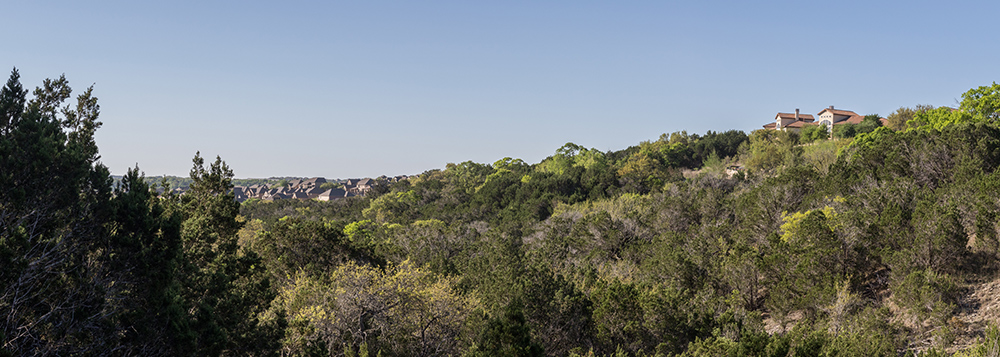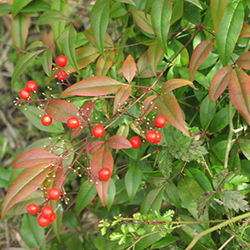
Preserve photo by Heather Valey
Western Travis County is a beautiful place to live and work, with its rolling green hills, open water, and majestic trees. But as anyone who lives here knows, living with nature can come with special challenges and rules. We hope this page will be a useful resource, helping us work together to keep this area beautiful and safe.
Travis County Natural Resources works closely with preserve neighbors to help minimize wildfire risk, control invasive plants and feral hogs, and protect the integrity of the preserve and surrounding neighborhoods. If you have any questions or concerns, or would like to get involved, please contact us.
Resources for Preserve Neighbors

Before cutting or clearing trees or woody vegetation, check to see if any restrictions apply. Clearing of woody vegetation could impact the endangered golden-cheeked warbler. A permit is required to disturb or remove endangered species habitat any time of year. No one, not even permit-holders, can disturb the birds’ habitat during nesting season (March 1 to August 31). For help determining whether you may have endangered species on your property, and to learn about obtaining a permit and mitigation options, see Development in Endangered Species Habitat.
To report the clearing of golden-cheeked warbler habitat during nesting season (March through August), please contact both Travis County Natural Resources ([email protected], 512-854-7213) and the U. S. Fish and Wildlife Service (512-490-0057). We ask that you include both agencies because Travis County is responsible for enforcing nesting season clearing restrictions for BCCP permit holders, and the U. S. Fish and Wildlife Service (USFWS) is responsible for enforcing these restrictions in all other cases.
If you suspect that golden-cheeked warbler habitat is being cleared without the proper permit outside of nesting season (September through February), please contact Travis County at [email protected] or 512-854-7213. Travis County Natural Resources maintains a database of properties that are permitted to clear habitat, and will forward reports of illegal clearing to USFWS.












